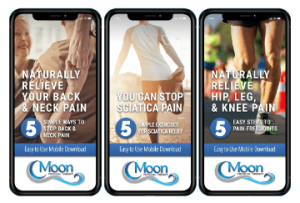Concussion
What is a Concussion?
In short, a concussion is a brain injury. The general definition of concussion means the act of forcefully shaking or jarring. A sports concussion is a type of mild traumatic brain injury (mTBI) caused by a shaking or jarring of the brain. This kind of concussion can occur with a bump, harsh blow or jolt to the head or the body. This causes the brain to move within the skull.
This movement will cause the brain to then hit the inside of the skull, which can result in a change in brain cell chemistry and structural injury from the cells stretching. This damage can show up as many different signs and symptoms depending on the part of the brain involved during a sports concussion.
Are concussions serious?
Some people make the mistakes of believing an injury is only as serious as it looks from the outside. Of course, sustaining a broken bone or tearing a ligament is definitely going to make a scene, but this isn’t the correct way to judge an injury! When an athlete blows out their knee, it’s visible to everyone. The pain on the athlete’s face only confirms what everybody else can already tell: the injury is real, it’s painful, and it needs medical attention.
Sports concussions are considered “mild” traumatic brain injuries because usually, concussions aren’t life-threatening. Concussions are still brain injuries though, and CAN lead to debilitating long-term consequences if not given the proper medical attention by a healthcare professional.
When someone hits their head on TV, they might be knocked unconscious for a brief period of time, or they might be able to stand up. They may look dizzy, dazed, or need a minute to regain their ability to think straight before they can go back to whatever it was they were doing. This kind of head injury isn’t as visible, so it doesn’t look as serious. Too often, it’s not treated as seriously as a concussion, either.
As we mentioned before, a broken bone may be visible, but a concussion is in many ways far more serious of a problem. A brain injury requires serious immediate and ongoing attention from a medical professional to ensure that the brain can regain optimal functionality. On TV, injuries that turn out to be “just a concussion” are often anti-climactic events that the audience is led to believe will be over in a few days, if not hours. In real life, however, these traumatic brain injuries — which usually happen as a result of a fall, severe shaking, car accident or a direct blow to the head — can negatively impact a person’s quality of life for several months. Needless to say, don’t believe everything you see on TV!
A cold is typically more obvious than a chronic disease, but that doesn’t make the chronic disease any less difficult to live with on a daily basis. In fact, a chronic disease is usually significantly more serious and complicated than your everyday seasonal cold. Similarly, concussions are not something that can be ignored and written off!
Whether a brain injury occurred as a result of a sport incident, a car accident, trip and fall, or other event, concussion therapy is absolutely necessary to ensure that there is no lasting damage following the trauma.
Concussion Therapy: Where To Go Post-Trauma
The severity of a traumatic brain injury can vary dramatically. While some concussions are indeed minor, and may not require long-term intervention, other brain injuries can leave a person with life-long consequences and debilitating issues.
The best treatment option In the immediate hours and days following a traumatic brain injury is to rest and take it easy. Resting your brain means really turning off everything that will stimulate your mind and to simply relax. For many people, this is difficult.
This means avoiding television, not looking at your phone, not reading, avoiding intense music, too much conversation and too much movement. This may sound boring, but this is what your brain needs to recover. Just like you’d put your feet up for a day or two after injuring your ankle, you need to give your brain time to rest and recover after this kind of injury.
During this period, you probably won’t be referred to concussion therapy. The important thing is to check in with your doctor for treatment and to have your brain injury assessed. Then, you should follow post-concussion instructions and information from your doctor, in order to give your brain a chance to bounce back. During this time, rest is absolutely the best way to deal with the uncomfortable symptoms that accompany a concussion, which include vomiting, confusion, weakness and headaches.
After several days, if your concussion symptoms haven’t subsided, then physical therapy at Moon Physical Therapy is recommended. Seeking out concussion therapy at this time can prevent long-term issues and help you experience a quicker return to your everyday life.
It’s important to be aware of the long-term symptoms you can experience without therapeutic intervention:
- Muscle weakness and spasms
- Decreased libido
- Disrupted menstruation and infertility
- Chronic headaches
- Fatigue
- Changes in weight
- Sleep disorder
When should I get help for a concussion?
If a concussion is left untreated, they can slow down growth in young children, and bring on early dementia for older patients. Fortunately, the physical therapy field is constantly discovering new ways to help patients suffering from long-term concussion complications.
If you believe you have suffered a concussion, please contact Moon Physical Therapy in Mililani and Kailua immediately, so we can do a thorough exam and get you on a recovery plan.
QUICK LINKS



